My son is profoundly deaf - but still passed a hearing test
- Published
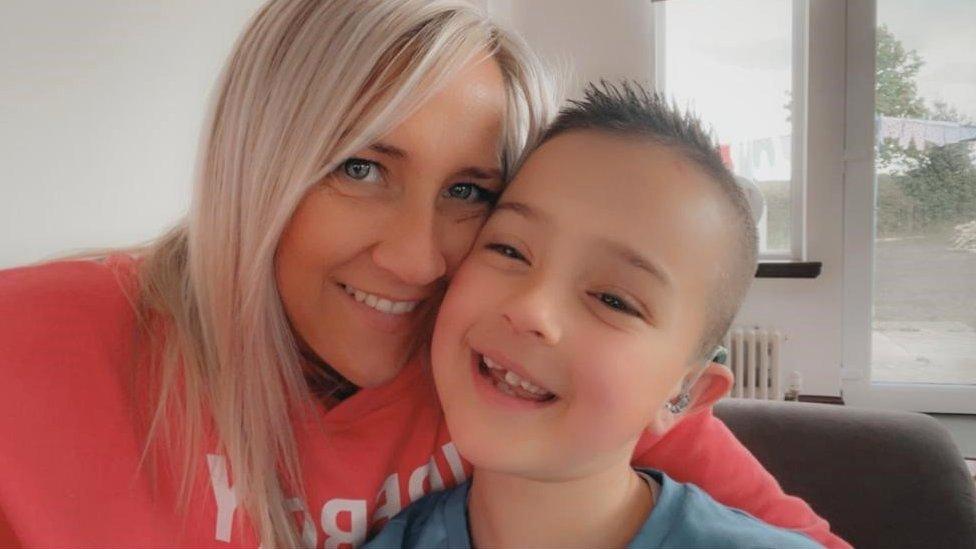
Carrie-Ann Farquhar said her son Jamie was not diagnosed as deaf until he was nearly four years old
Carrie-Ann Farquhar was told that her son Jamie was deaf at birth - so it was a huge relief when he passed a hearing test eight months later.
The 39-year-old was told that Jamie had "normal hearing" after the assessment at the NHS Lothian paediatric audiology department in Edinburgh.
Carrie-Ann and her son went straight to her favourite restaurant to celebrate with Jamie's father, Gary Farquhar.
The mother-of-two from West Lothian said: "I thought brilliant, that he was ok. It was such a huge relief after worrying for eight months."
But as time went on she began to worry that something wasn't right, and before Jamie turned four years old he had been diagnosed as being profoundly deaf.
Carrie-Ann has come forward to tell her son's story after it emerged that more than a dozen families are seeking compensation following "significant failures" at NHS Lothian's hearing service for children.
The health board apologised to more than 155 families in December after an independent investigation found serious problems diagnosing and treating hearing loss.
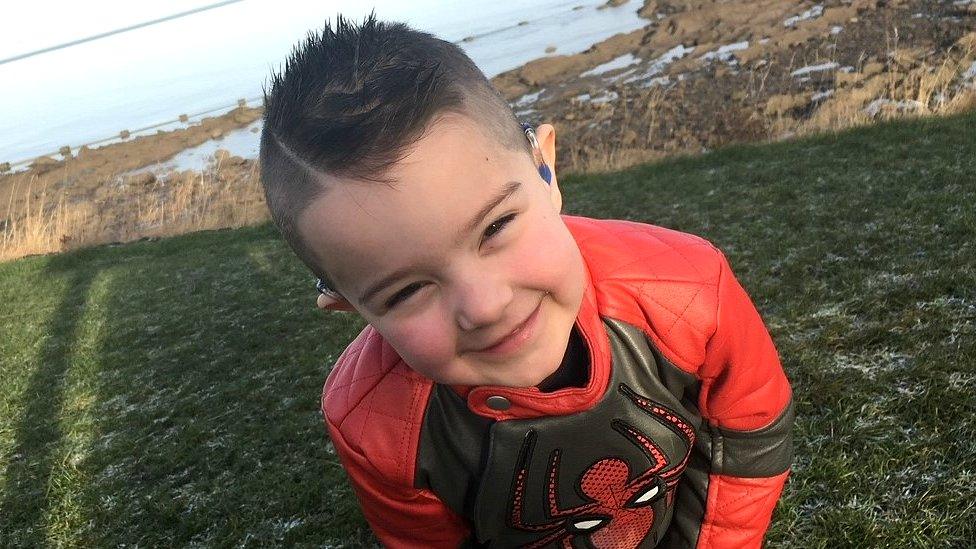
Jamie has now been fitted with hearing aids
Deaf support group, Flaag, said Jamie's experience showed that more children had been affected by the "significant failures" than had been highlighted in the report.
NHS Lothian said Jamie's hearing loss could have been diagnosed earlier but that his condition was now being "appropriately managed".
Carrie-Ann, a primary school teacher from West Calder, told BBC Scotland about the hearing test which Jamie passed at eight months of age.
She said there had been two large boxes - as "tall as a fridge" - opposite her son.
"They were about two metres apart and the idea was to watch if he turned towards the box which was making a noise," she said.
"The trouble, I noticed, was the picture also lit up so he was turning his head at that instead of the noise - but they still passed him."
'He wouldn't flinch'
The family initially felt great relief - but by the time Jamie reached the age of one, Carrie-Ann thought he should be "responding a bit better".
She did not take him back to the hospital straight away so that he would have more time to develop.
But she began to feel suspicious that something was not right during a farm outing when she became separated from him, and Jamie could not hear his mother shouting at the top of her voice.
"Then we noticed even if he was standing right next to his step-dad, who plays the snare drum, he wouldn't flinch," she said.
So she took Jamie back to the doctor and he was referred to a speech and language therapist.
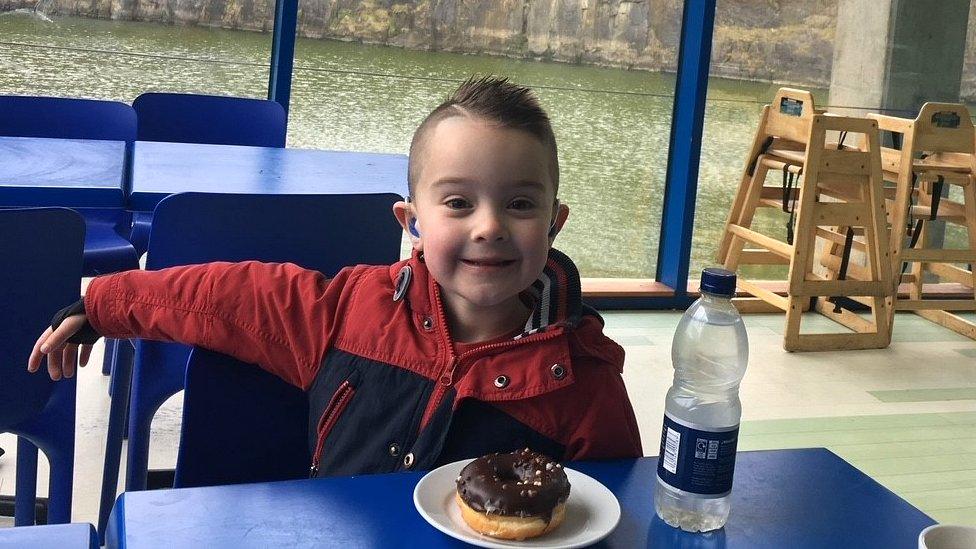
Jamie continues to be a patient at NHS Lothian's audiology department
Carrie-Ann said the therapist had suggested that Jamie might be autistic, or that she might be a neurotic first-time mum.
"I was very upset and angry, and because I was so emotionally charged I didn't voice at the time that he was lip-reading," she said.
"I knew he was an intelligent, curious boy."
She was "unhappy" with the therapist's diagnosis, so went to her GP again and Jamie was referred back to audiology.
For the next test, he had to put an object in a box when he heard a noise.
"They gave instructions only with words, so because he couldn't hear he didn't know what to do," Carrie-Ann said.
"The audiologist said he's bored, has a lack of concentration and he's not listening to the instructions.
"I was frustrated because I know he's eager to please so this didn't ring true with me, I knew it was more a case that he didn't understand the spoken instructions."
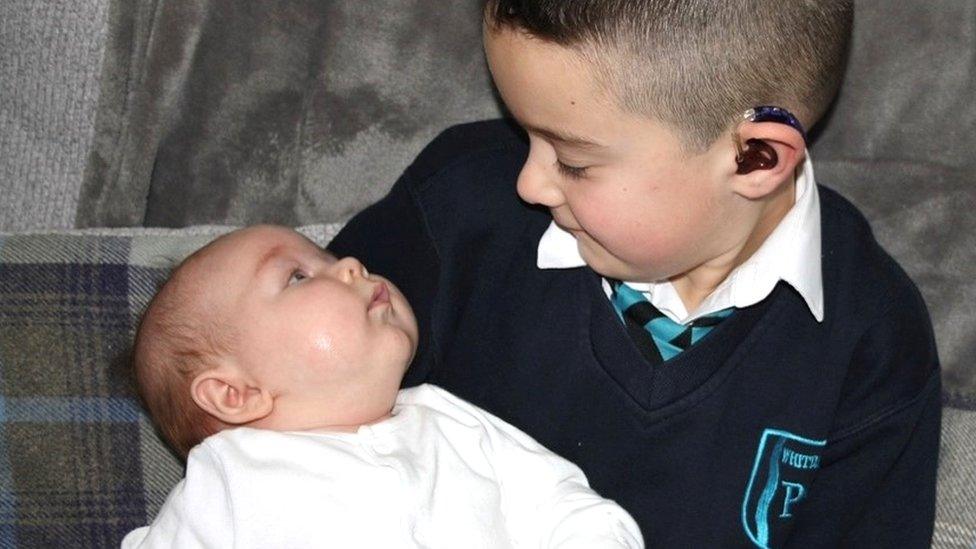
Jamie Farquhar with his new baby sister, Emma
Carrie-Ann said she was ready to accept she might be wrong when Jamie's step-dad, Callum Firth, queried the test and they "reluctantly" tested him again.
She said: "The woman then physically held her hands up and said she didn't know what was wrong with him."
At a further appointment Jamie was diagnosed as severely deaf. He also had glue ear - when the middle part of the ear canal fills up with fluid - which gave him even more hearing loss.
He was fitted with hearing aids just as he started nursery, aged three-and-a-half.
Carrie-Ann said Jamie only had a vocabulary of 20 words at the age of four, when he should have been speaking full sentences. Three-year-olds are expected to have a vocabulary of more than 1,000 words.
She said she deferred his entry to school for a year because he had to play catch-up.
"It is lucky I am a primary teacher because I was able to support him, as otherwise he might have struggled more," she said.
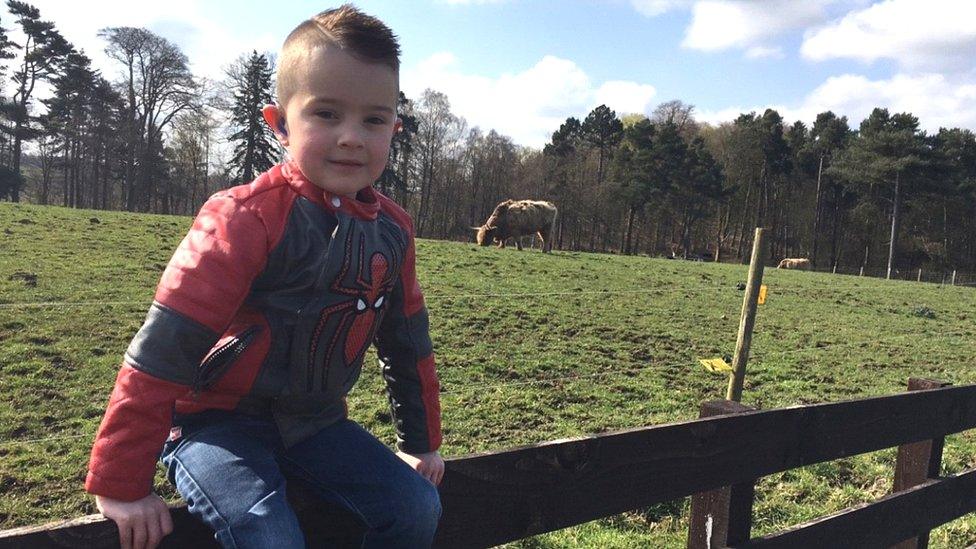
Jamie Farquhar was held back for a year from school so he had time to catch up with his speech
Mike Henderson, co-founder of deaf support group Flaag, said he feared there were many more children who had experiences like Jamie's but who were not part of the report which was published in December 2021.
"We want to increase the awareness of this catastrophic failing because we know there have been more than 155 children affected," he said.
The independent investigation by the British Academy of Audiology (BAA) found "significant failures" over nine years at NHS Lothian.
The report said there was "no evidence" national guidelines and protocols on hearing tests for children had been followed or consistently applied "at any point since 2009".
It said NHS Lothian staff were deviating from professional standards and that several profoundly deaf children were diagnosed too late for vital implant surgery.
The report highlighted that the average age of diagnosis of hearing loss at NHS Lothian was 4.5 years, compared with an average of 109 days in England.
Working through cases
Dr Tracey Gillies, NHS Lothian's medical director, repeated the board's "sincere apology" and said lessons had been learned.
"Unfortunately, in Jamie's particular case there was a delay in the detection of his condition," she said.
"Jamie is not completely deaf but had a mixed pattern of deafness with both congestion and an underlying sensorineural hearing loss which could have been diagnosed earlier."
Dr Gillies said Jamie was now being "appropriately managed" and remained under long-term review.
"As part of its findings, the audit recommended we needed to work with our teams to change and improve the way they interact with families and children during assessments," she added.
"We will review all children where the audit and reviews by BAA have raised concerns and will share any identified assessments that were not carried out to the required standard.
"We are working through these cases in order of priority and will also continue to work with other patients at their regular appointments."
- Published2 March 2022
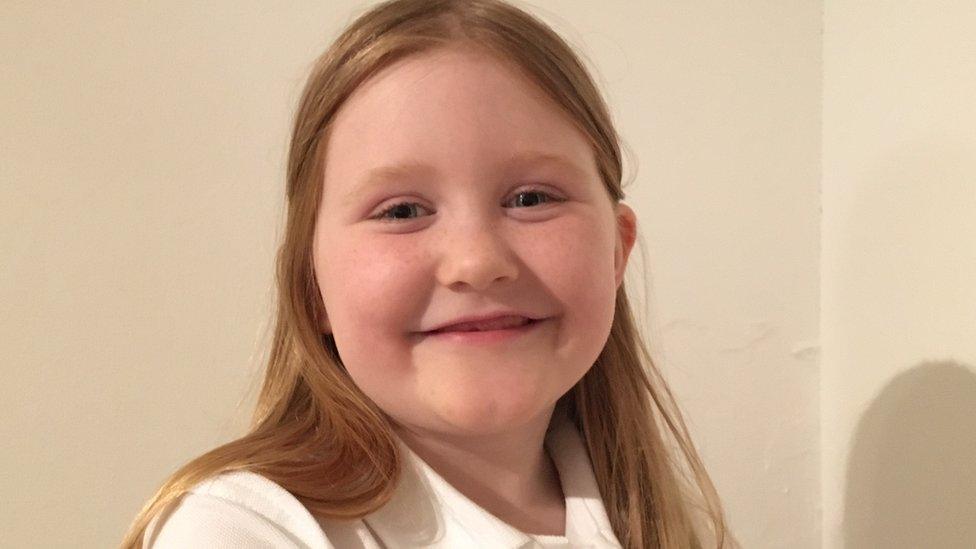
- Published21 January 2022
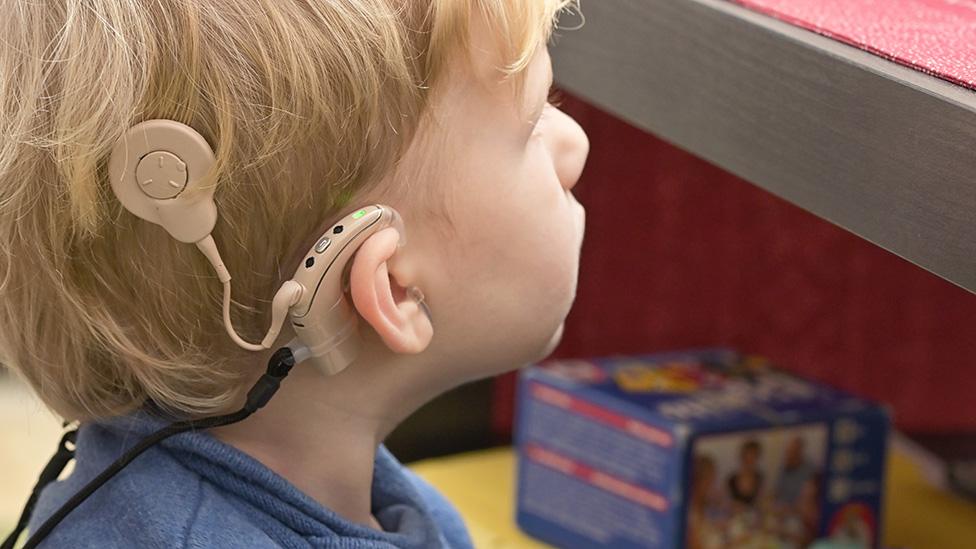
- Published9 December 2021
